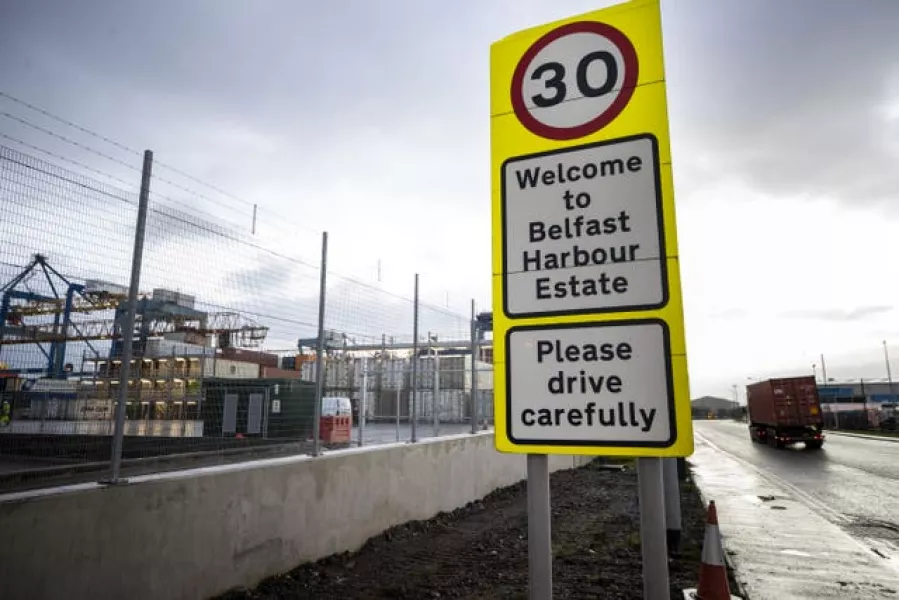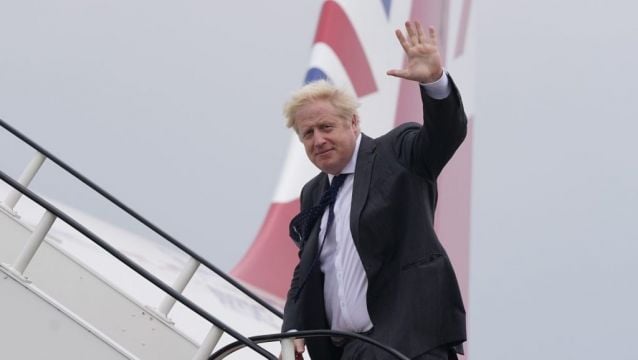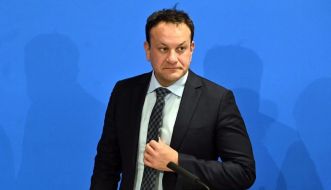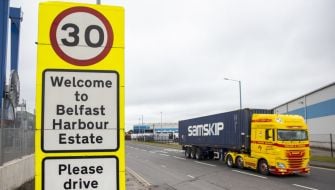British prime minister Boris Johnson has warned the post-Brexit issues with the North “can’t go on forever” as UK ministers consider the prospect of tearing up parts of an agreement with the EU.
Mr Johnson insisted the UK is not “trying to stoke” the problems ahead of a meeting with US president Joe Biden at the White House on Tuesday.
Proud of his Irish heritage, Mr Biden has repeatedly warned the British government not to damage the peace process amid continuing issues over the Northern Ireland Protocol.
The UK's Brexit minister Lord Frost has argued the threshold of triggering Article 16 of the protocol, which would effectively tear up parts of the deal he negotiated, has been met.
So far the UK government has resisted taking what amounts to a nuclear option, but Mr Johnson was asked if he could make the move in the days after meeting the US president.
“I hope everybody knows this isn’t something that the UK government is trying to stoke up for our own political purposes,” he told reporters travelling with him to New York for the United Nations General Assembly.
“On the contrary, we want to fix this, we want common sense. We want no barriers in the UK for trading in our country and it’s crazy at the moment that we’ve got the protocol being enforced or being used in the way that it is.
“I don’t believe it’s sensible, 20 per cent of all checks in the whole of the perimeter of the EU are now done in Northern Ireland. So we do need to sort it out, we need to sort it out fast.”
He said Dutch prime minister Mark Rutte had come to the UK last week to “see if he could mediate on the issue”.
“We seek a solution, but it has to be one that allows the free movement of goods between all parts of our country,” Mr Johnson said.

“So to answer your question, the current situation can’t go on forever.”
The protocol was designed to avoid a hard border on the island of Ireland by effectively keeping Northern Ireland in the EU’s single market for goods.
However, the UK wants to rewrite it because of trade barriers it has created for goods crossing the Irish Sea from Britai, but Brussels has rejected the calls, leading to a stand-off where post-Brexit grace periods on goods have repeatedly been extended in order to prevent further shortages.







